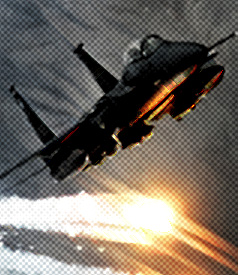On Thursday, The New York Times made an astonishing editorial choice, for which its editors owe the public an explanation: it published an op-ed by an obscure and poorly identified author attacking Gen. Stanley McChrystal for his directive last July that airstrikes in Afghanistan be authorized only under “very limited and prescribed conditions.” The op-ed denounced an “overemphasis on civilian protection” and charged that “air support to American and Afghan forces has been all but grounded by concerns about civilian casualties.”
The author of the op-ed, Lara M. Dadkhah, is identified by The Times merely as “an intelligence analyst.” In the body of the op-ed, the author identifies herself as “employed by a defense consulting company,” without telling us which company, or what her relationship might be to actors who stand to lose financially if the recognition that killing civilians is bad for the United States were to affect expenditures by the United States military.
As Glenn Greenwald asked in Salon:
What defense consulting company employs her? Do they have any ties to the war effort? Do they benefit from the grotesque policies she’s advocating? What type of “analyst” is she? Who knows … it’s virtually impossible to find any information about “Lara Dadkhah” using standard Internet tools.
The use of anonymous and underdisclosed sources by The New York Times is an issue of longstanding dispute. The newspaper has written policies on the use of anonymous and poorly-identified sources – policies which it does not always follow, as The Times’ public editor has documented.
That policy concerns news sources, and, so, The Times may argue that since this is an op-ed, different standards apply. But to claim that there are not very similar issues here would be to dodge responsibility. The New York Times does not publish op-eds randomly; it does not publish op-eds questioning whether the Nazis systematically murdered European Jews or whether the Bush administration blew up the World Trade Center. The Times makes editorial choices about what is worthy. Publishing this op-ed was a choice: publishing an op-ed attacking General McChrystal’s efforts to reduce Afghan civilian casualties was a choice; publishing one by an unknown and underidentified author who may have a financial interest in promoting the aggressive use of airpower without regard to civilian casualties was also a choice. The New York Times’ editors should be prepared to defend these choices, particularly given the unique role The Times exercises in influencing national political debate, both by influencing the choices of other media and by influencing the perceptions of government officials. If The Times’ editors are not willing to defend those choices, then the status of The New York Times as a “watchdog” of “accountability” is something that fair-minded people should take a lot less seriously.
You can ask The New York Times’ public editor to investigate these concerns here.
Join us in defending the truth before it’s too late
The future of independent journalism is uncertain, and the consequences of losing it are too grave to ignore. To ensure Truthout remains safe, strong, and free, we need to raise $43,000 in the next 6 days. Every dollar raised goes directly toward the costs of producing news you can trust.
Please give what you can — because by supporting us with a tax-deductible donation, you’re not just preserving a source of news, you’re helping to safeguard what’s left of our democracy.
